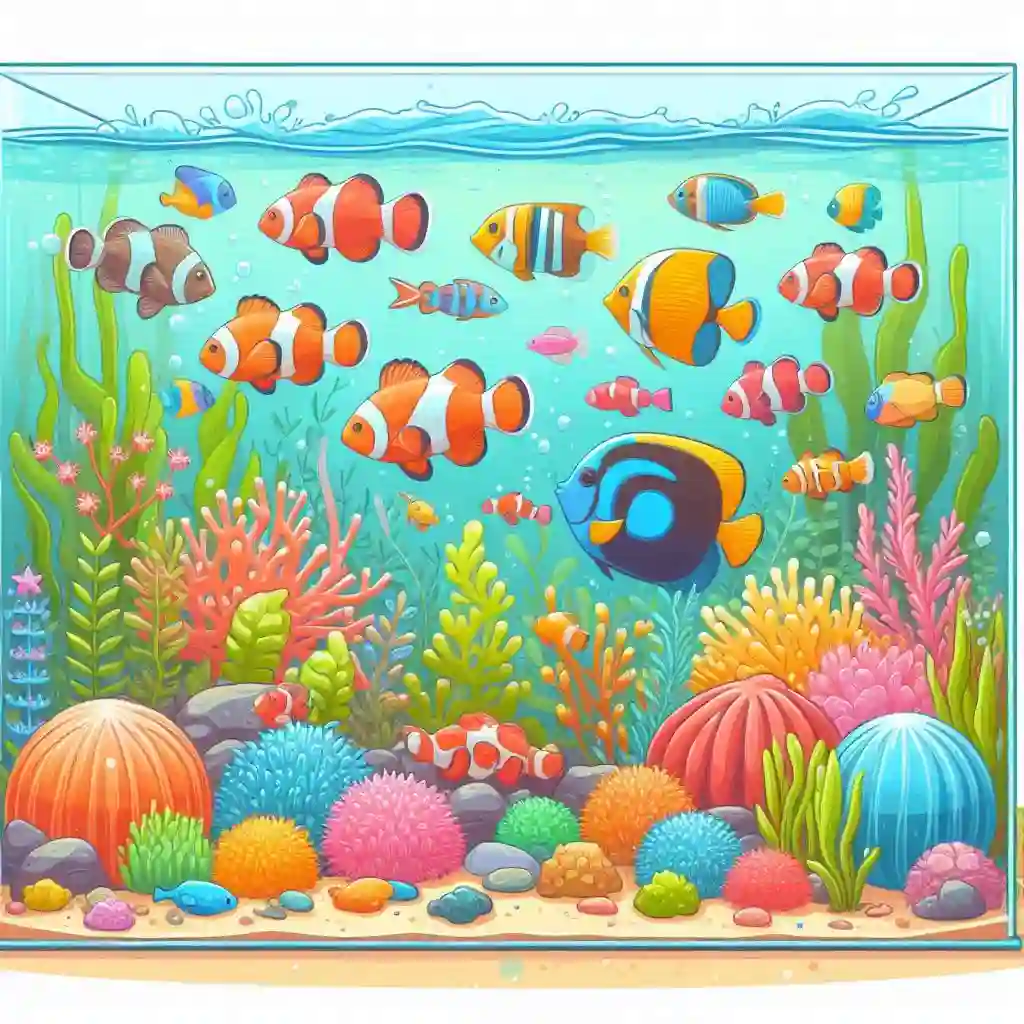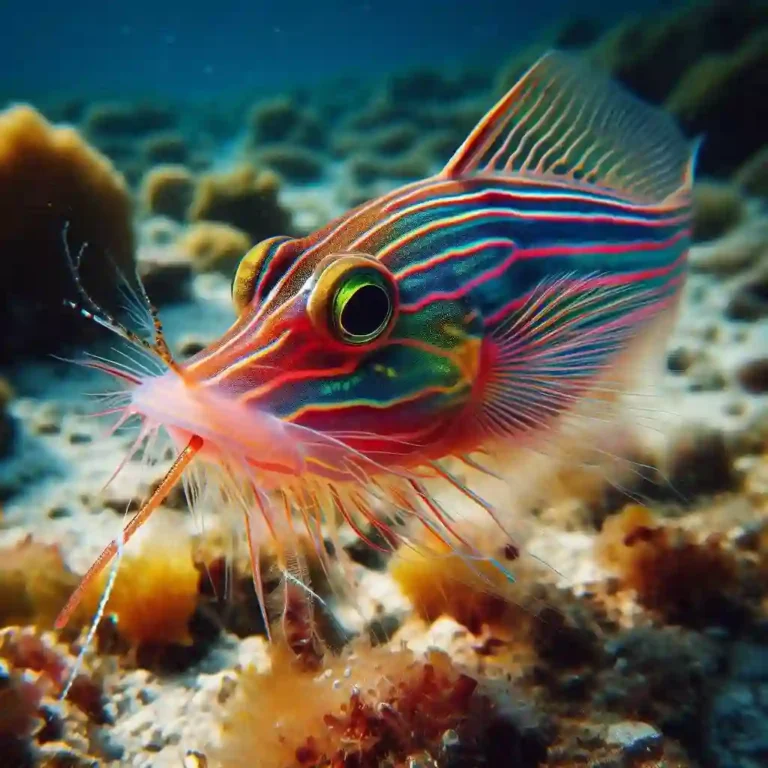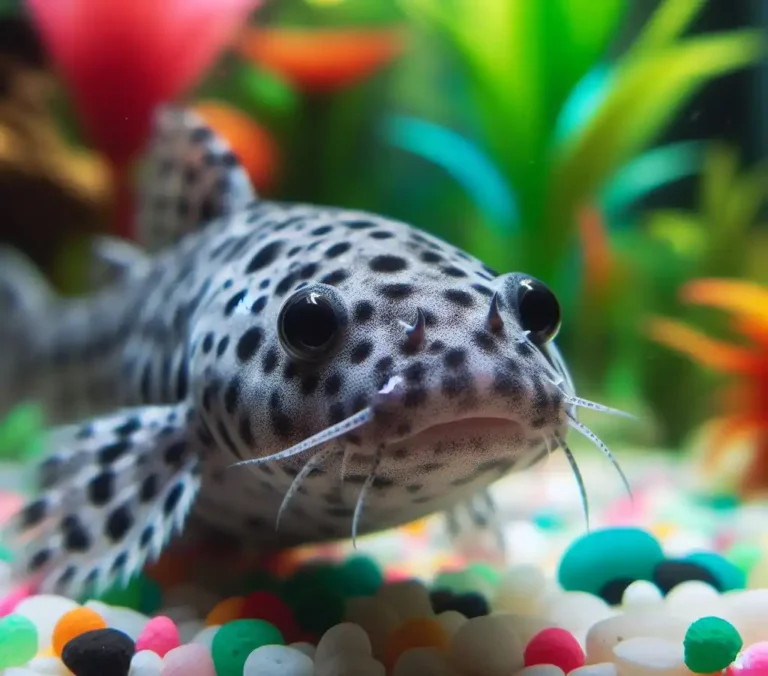Do Fish Get Sad When Other Fish Die? Uncovering the Emotional Intelligence
Do Fish Get Sad When Other Fish Die? Do fish, with their seemingly simple nervous systems and instinct-driven behaviors, have the capacity to experience emotions like sadness or grief when one of their own passes away?
As we delve into the fascinating realm of fish behavior, we’ll explore the intriguing question: do fish get sad when other fish die?
Do Fish Get Sad When Other Fish Die? A Quick Guide

Do Fish Feel Emotions?
While we can’t directly ask a fish how it feels, research suggests that fish are capable of experiencing emotions such as fear, stress, and even joy.
Do Fish Mourn the Death of a Tankmate?
Some research suggests that fish may exhibit behaviors that resemble mourning, such as:
- Changes in swimming patterns
- Changes in appetite
- Changes in social behavior
However, it’s essential to note that these behaviors may not necessarily mean that the fish is experiencing emotions like sadness.
Why Do Fish Exhibit These Behaviors?
Fish may exhibit behaviors that resemble mourning due to various reasons, such as:
- Stress and anxiety caused by the death of a tankmate
- Changes in their social hierarchy or environment
- Changes in their feeding or social behavior
What Can You Do to Help Your Fish?
To help your fish cope with the loss of a tankmate, you can:
- Provide a stable and comfortable environment
- Introduce new tankmates to provide social interaction
- Monitor your fish’s behavior and adjust their care as needed
The Myth of Fish Emotions: Separating Fact from Fiction

Debunking the Myth
However, recent studies have shown that fish are indeed capable of experiencing stress, anxiety, and even fear. For example, research has demonstrated that fish can:
- Recognize and respond to predators, indicating a fear response
- Exhibit stress behaviors when subjected to changes in their environment
- Display anxiety-like behaviors when separated from their school
These findings suggest that fish are not as emotionally numb as previously thought.
The Complexity of Fish Emotions
While fish may not experience emotions in the same way as humans, they are certainly capable of complex emotional responses. In fact, studies have shown that fish have a remarkable ability to:
- Recognize and remember individual members of their school
- Communicate with each other through a variety of signals, including body language and chemical cues
- Even exhibit cultural behaviors, such as learning and passing on knowledge to other fish
The Science of Fish Social Behavior: What We Know So Far
Schooling Behavior
One of the most well-known examples of fish social behavior is schooling. Schooling is a behavior where large groups of fish swim together in a coordinated manner, often for protection from predators. But schooling is more than just a defensive strategy – it’s also a complex social behavior that involves communication, cooperation, and even altruism.
Communication in Fish
Fish communicate with each other through a variety of signals, including:
- Visual cues: Fish use body language and visual displays to convey information about their identity, status, and intentions.
- Chemical cues: Fish release chemical signals, such as pheromones, to communicate with each other.
- Acoustic cues: Some fish use sound to communicate, such as the drumming sounds made by some species of catfish.
Social Hierarchy
Many species of fish live in social hierarchies, with dominant individuals holding higher ranks than subordinate ones. Dominant fish often have priority access to food, mates, and other resources, while subordinate fish may be forced to wait or settle for leftovers.
Cooperation and Altruism
Fish have been observed exhibiting cooperative and altruistic behaviors, such as:
- Cooperative hunting: Some species of fish work together to hunt and catch prey.
- Altruistic warning signals: When a fish detects a predator, it may release a warning signal to alert other fish in the area.
Social Learning and Culture
Fish are capable of social learning, where they learn from each other and even pass on knowledge to other generations. For example, some species of fish have been observed learning and passing on information about food sources, predators, and even social behaviors.
Implications for Aquarium Care
So, what does this mean for aquarium owners? By recognizing the complex social behaviors of fish, we can create more naturalistic and stimulating environments that meet their social needs. This can include:
- Providing adequate space and hiding places for fish to establish territories and social hierarchies
- Introducing compatible species that can interact and socialize with each other
- Creating varied and dynamic environments that challenge and engage fish
Stress and Anxiety in Fish: How Death Affects the School

The Impact of Death on Fish Behavior
Research has shown that fish are capable of recognizing and responding to the death of a school member. When a fish dies, the remaining fish may exhibit changes in behavior, including:
- Increased aggression: Fish may become more aggressive towards each other, potentially leading to conflicts and injuries.
- Changes in feeding behavior: Fish may alter their feeding patterns, potentially leading to changes in growth rates and overall health.
- Altered social structures: The death of a dominant fish can lead to changes in social hierarchies, causing stress and anxiety among the remaining fish.
The Role of Chemical Cues
When a fish dies, it releases chemical cues, such as alarm pheromones, into the water. These cues can signal to other fish that a predator is present, triggering a stress response. This can lead to a range of behaviors, including:
- Increased vigilance: Fish may become more alert and vigilant, scanning their surroundings for potential threats.
- Changes in schooling behavior: Fish may alter their schooling behavior, such as swimming more erratically or tightly grouping together.
The Impact of Death on Fish Stress and Anxiety
The death of a school member can cause significant stress and anxiety among the remaining fish. Chronic stress can lead to a range of negative health effects, including:
- Weakened immune systems: Chronic stress can suppress the immune system, making fish more susceptible to disease.
- Changes in physiology: Chronic stress can alter physiological processes, such as heart rate and respiration, leading to negative health effects.
Do Fish Recognize and Mourn Their Dead?
Recognition of Death
Studies have shown that some species of fish are capable of recognizing and responding to the death of a school member. For example:
- Zebrafish: Researchers have found that zebrafish are able to recognize and respond to the death of a school member, even when the dead fish is removed from the tank.
- Guppies: Guppies have been observed displaying behaviors that suggest they recognize and respond to the death of a school member, such as changes in swimming patterns and social behavior.
Mourning Behavior
While fish may not exhibit the same emotional responses as humans, they may still display behaviors that resemble mourning. For example:
- Changes in swimming patterns: Fish may alter their swimming patterns, such as swimming more slowly or erratically, in response to the death of a school member.
- Changes in social behavior: Fish may alter their social behavior, such as avoiding certain areas of the tank or changing their feeding patterns, in response to the death of a school member.
The Role of Chemical Cues
Chemical cues, such as alarm pheromones, play a crucial role in fish communication and behavior. When a fish dies, it releases these chemical cues into the water, which can signal to other fish that a predator is present or that a school member has died.
The Role of Olfactory Cues in Fish Communication
The Importance of Smell in Fish Communication
Fish have a highly developed sense of smell, which they use to detect and respond to chemical cues in their environment. These cues can be released by other fish, plants, or even predators, and can convey a wide range of information.
Types of Olfactory Cues
There are several types of olfactory cues that fish use to communicate, including:
- Alarm pheromones: Released by fish in response to predators or stress, these cues signal danger to other fish in the area.
- Sex pheromones: Released by fish during courtship or spawning, these cues signal reproductive readiness.
- Territorial pheromones: Released by fish to mark their territory and deter intruders.
How Fish Use Olfactory Cues
Fish use olfactory cues to communicate in a variety of ways, including:
- Mate selection: Fish use olfactory cues to select mates and assess reproductive readiness.
- Territorial defense: Fish use olfactory cues to mark their territory and deter intruders.
- Predator avoidance: Fish use olfactory cues to detect predators and avoid them.
Fish Brain Structure and Emotional Intelligence
The Fish Brain
The fish brain is composed of several distinct regions, including the telencephalon, diencephalon, and brainstem. The telencephalon is responsible for processing sensory information, while the diencephalon regulates emotional responses. The brainstem controls automatic functions, such as breathing and heart rate.
Emotional Processing in Fish
Research has shown that fish are capable of processing and responding to emotional stimuli, including:
- Fear responses: Fish exhibit fear responses to predators, including changes in behavior and physiology.
- Stress responses: Fish exhibit stress responses to changes in their environment, including changes in water quality or social hierarchy.
- Social behavior: Fish exhibit complex social behavior, including cooperation and altruism.
Neurotransmitters and Emotional Regulation
Neurotransmitters, such as serotonin and dopamine, play a crucial role in emotional regulation in fish. These chemicals help to regulate emotional responses, including fear and stress.
Observations from Aquarium Owners: Anecdotal Evidence
Personal Experiences
Many aquarium owners have reported observing behaviors that suggest fish are capable of experiencing emotions such as joy, fear, and even grief. For example:
- Playing with toys: Some aquarium owners have reported observing their fish playing with toys or interacting with their reflections in mirrors, suggesting a sense of joy and curiosity.
- Recognizing owners: Many aquarium owners have reported that their fish recognize and respond to their presence, suggesting a sense of familiarity and attachment.
- Mourning the loss of a tankmate: Some aquarium owners have reported observing changes in behavior and appetite in their fish after the loss of a tankmate, suggesting a sense of grief or mourning.
Common Observations
While anecdotal evidence is not always scientifically reliable, common observations from aquarium owners can provide valuable insights into fish behavior and emotions. Some common observations include:
- Personality differences: Many aquarium owners have reported observing personality differences between individual fish, suggesting that fish may have unique personalities and emotional profiles.
- Emotional responses to environment: Aquarium owners have reported observing changes in fish behavior in response to changes in their environment, such as changes in water quality or the introduction of new tankmates.
- Social behavior: Many aquarium owners have reported observing complex social behavior in their fish, including cooperation, communication, and even altruism.
Implications for Aquarium Care and Fish Welfare
Providing a Stimulating Environment
One of the most important implications for aquarium care is providing a stimulating environment that meets the emotional and psychological needs of fish. This can include:
- Providing hiding places: Fish need places to hide and feel secure, so providing plenty of hiding places, such as plants, rocks, and decorations, can help to reduce stress and anxiety.
- Introducing enrichment activities: Introducing enrichment activities, such as puzzle feeders or environmental changes, can help to stimulate fish and reduce boredom.
- Creating a sense of community: Creating a sense of community among fish by introducing compatible species and providing plenty of social interaction can help to promote emotional well-being.
Monitoring Fish Behavior
Monitoring fish behavior is crucial for identifying signs of stress, anxiety, or other emotional responses. By regularly monitoring fish behavior, aquarium owners and caretakers can:
- Identify signs of stress: Recognizing signs of stress, such as changes in behavior or appetite, can help to identify potential problems early on.
- Intervene early: Intervening early can help to prevent more serious problems from developing, such as disease or injury.
- Adjust care and management: Adjusting care and management practices can help to reduce stress and improve the overall welfare of fish.
Creating a Humane Environment
Creating a humane environment for fish requires a commitment to providing a safe, healthy, and enriching environment. This can include:
- Providing adequate space: Providing adequate space for fish to swim and thrive can help to reduce stress and anxiety.
- Maintaining good water quality: Maintaining good water quality is essential for fish health and well-being.
- Avoiding overcrowding: Avoiding overcrowding can help to reduce stress and improve the overall welfare of fish.
FAQs
Q: Do fish have emotions?
A: While we can’t directly ask a fish how it feels, research suggests that fish are capable of experiencing emotions such as fear, stress, and even joy.
Q: Can fish recognize and respond to their names?
A: Yes, some research suggests that fish can recognize and respond to their names, although the extent to which they understand the concept of a “name” is still unclear.
Q: Do fish have a sense of self?
A: While we can’t directly ask a fish about its sense of self, research suggests that fish may have a sense of self, although it may be different from our own understanding of self.
Q: Can fish learn and remember?
A: Yes, fish are capable of learning and remembering, although the extent to which they can learn and remember complex tasks is still unclear.
Q: Do fish have a sense of time?
A: While we can’t directly ask a fish about its sense of time, research suggests that fish may have a sense of time, although it may be different from our own understanding of time.
Q: Can fish communicate with each other?
A: Yes, fish are capable of communicating with each other through a variety of methods, including body language, vocalizations, and chemical signals.
Q: Do fish have a sense of social hierarchy?
A: Yes, research suggests that fish may have a sense of social hierarchy, although the extent to which they understand the concept of social hierarchy is still unclear.
Q: Can fish be trained?
A: Yes, fish can be trained to perform certain tasks, although the extent to which they can learn and remember complex tasks is still unclear.
Q: Do fish have a sense of self-awareness?
A: While we can’t directly ask a fish about its sense of self-awareness, research suggests that fish may have a sense of self-awareness, although it may be different from our own understanding of self-awareness.

Hello, I’m Aria Cooper, the heart and soul behind Swimmy Buddies. As a devoted fish aficionado, I share my aquatic adventures and expertise to inspire your own underwater explorations. 🐠🌊







